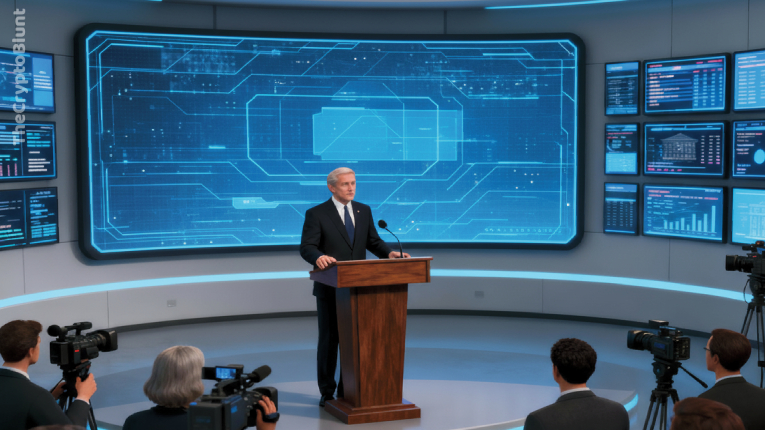White House media representative Karoline Leavitt asserts that Donald Trump’s clemency for Binance originator underwent a “comprehensive vetting procedure” before authorization was given by the head of state.
The White House meticulously examined Binance originator Changpeng Zhao’s clemency and adhered to the established protocol before the document was transmitted to Chief Executive Donald Trump for his ratification, according to White House media liaison Karoline Leavitt.
Trump justified the clemency during an interview with CBS News’ 60 Minutes on Sunday, stating he possessed “no knowledge” of who Zhao is and rejecting disapproval of his pardon as being politically driven.
Leavitt stated in a briefing on Tuesday that Trump’s remarks concerning Zhao in the discussion were intended to transmit that “no personal acquaintance is held by him” and that the chief executive “does not maintain a personal connection with this person.”
She further stated that the clemency was regarded with “maximum gravity” and a “comprehensive vetting procedure” was executed by the Department of Justice and the legal department of the White House.
“There’s a whole team of qualified lawyers who look at every single pardon request that ultimately make their way up to the president of the United States,” she added. “He’s the ultimate final decision maker.”
This action succeeds numerous media accounts implying that Binance assisted the Trump family’s digital asset undertaking, World Liberty Financial, with developing its fixed-value currency and deploying it in a $2 billion capital agreement. This involvement was refuted by Binance CEO Richard Teng.
Trump “Righted a Wrong,” Says Leavitt
Leavitt asserted that Zhao was subjected to “excessive prosecution by an politicized Department of Justice,” and that an unreasonable sanction was pursued by the Biden governance as a consequence.
Zhao acknowledged culpability in November 2023 for neglecting to sustain an efficient Anti–Money Laundering initiative at Binance, a transgression of the Bank Confidentiality Statute.
US attorneys initially sought a three-year custodial duration, but this was dismissed by the sentencing magistrate as “unduly severe.” Instead, a four-month incarceration was selected, which Zhao commenced serving in April 2024.
“The president is correcting that wrong, and he has officially ended the Biden administration’s war on the cryptocurrency industry, and I think that’s the message he sent with this pardon,”
Leavitt said.
Zhao’s legal counsel, Teresa Goody Guillén, and other adherents have contended it represented a severe penalty considering it comprised a solitary accusation of omitting to maintain an operative adherence regimen, and Zhao was a non-aggressive initial wrongdoer.
60 Minutes Omits Crypto Question from Broadcast
In a segment of Trump’s 60 Minutes discussion that was edited from telecast, CBS’s Norah O’Donnell inquired of the chief executive whether he was troubled “regarding the impression of impropriety,” pertaining to Zhao’s clemency.
“I can’t say, because — I can’t say — I’m not concerned. I don’t — I’d rather not have you ask the question,”
Trump replied, according to a transcript of the interview.
He subsequently appended that the US held the “preeminent global position in digital currency” attributable to his role as chief executive, and that he did not desire “China or any other nation to seize it. It represents a colossal sector.”
The YouTube clip of CBS’s discussion with Trump indicates that it was reduced for enhanced comprehension.
Preceding the deleted inquiry, Trump mentioned that his male offspring are more engaged with digital currency than he is, and he holds very “limited information about it, except for one item. It represents an enormous sector.”
















